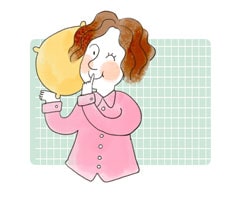
7 tips on how to fall asleep fast | Dodow
Check out these 7 tips to sleep well, whether you want to better your eating habits or do breathing exercises or meditation.
Lire la suiteInspired by yoga, hypnotherapy and meditation, developing Dodow immersed us into a deep study of alternative methods for fixing health problems; sleeping was just a first step.
We would like to share with you our studies, and help you discover health and well-being advice, that are easy to put into practice.
You’ve already heard that sleep works with cycles… but you don’t really remember anything else. Stages, phases, deep sleep, REM sleep, all those words probably mean something, but you forgot in which order and anyway you don’t have time to read Wikipedia.
Fortunately, we’re here to explain in a clear, simple (and quick) way how to fall asleep – to help you determine the quality of your sleep and open your eyes on some of your habits that might not be as harmless as you think they are.
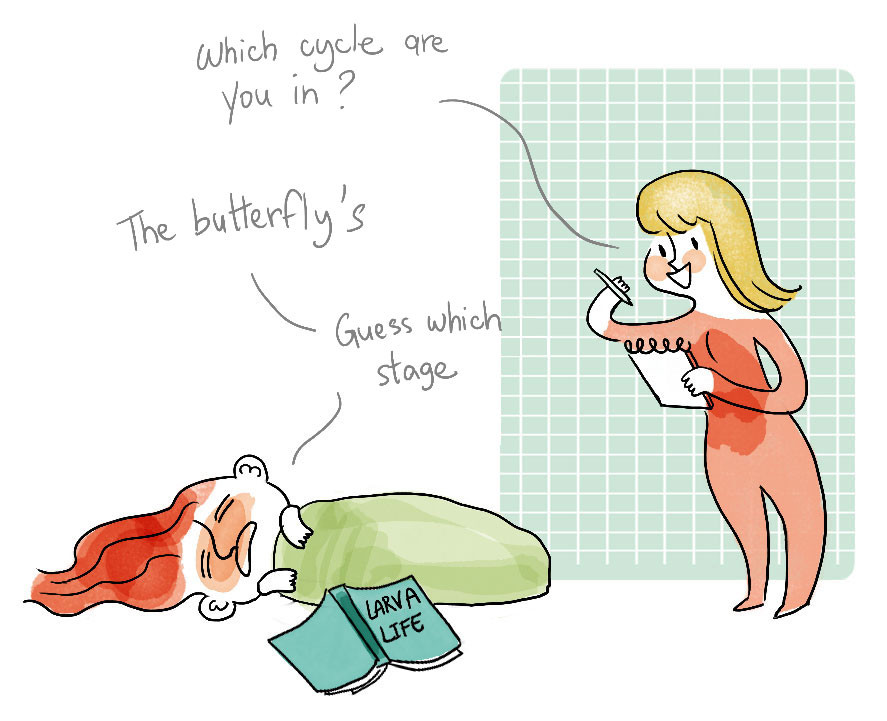
The average sleeper’s night has 4 to 6 sleep cycles per night, each lasting about 90 minutes. During the first sleep phase, drowsiness, you are at an intermediate state between true sleep and wakefulness.
Your heartbeat slows down, you are less watchful, and your eyes move slowly under your closed eyelids.
More than 20 min of drowsiness and it’s considered insomnia! To encourage your body to become drowsy to prepare for a good night’s sleep, check out our tips on cardiac coherence.
This is the stage in which most people are in when they accidentally fall asleep at the wheel… careful to have a good night’s sleep if you have a way to go on the road.
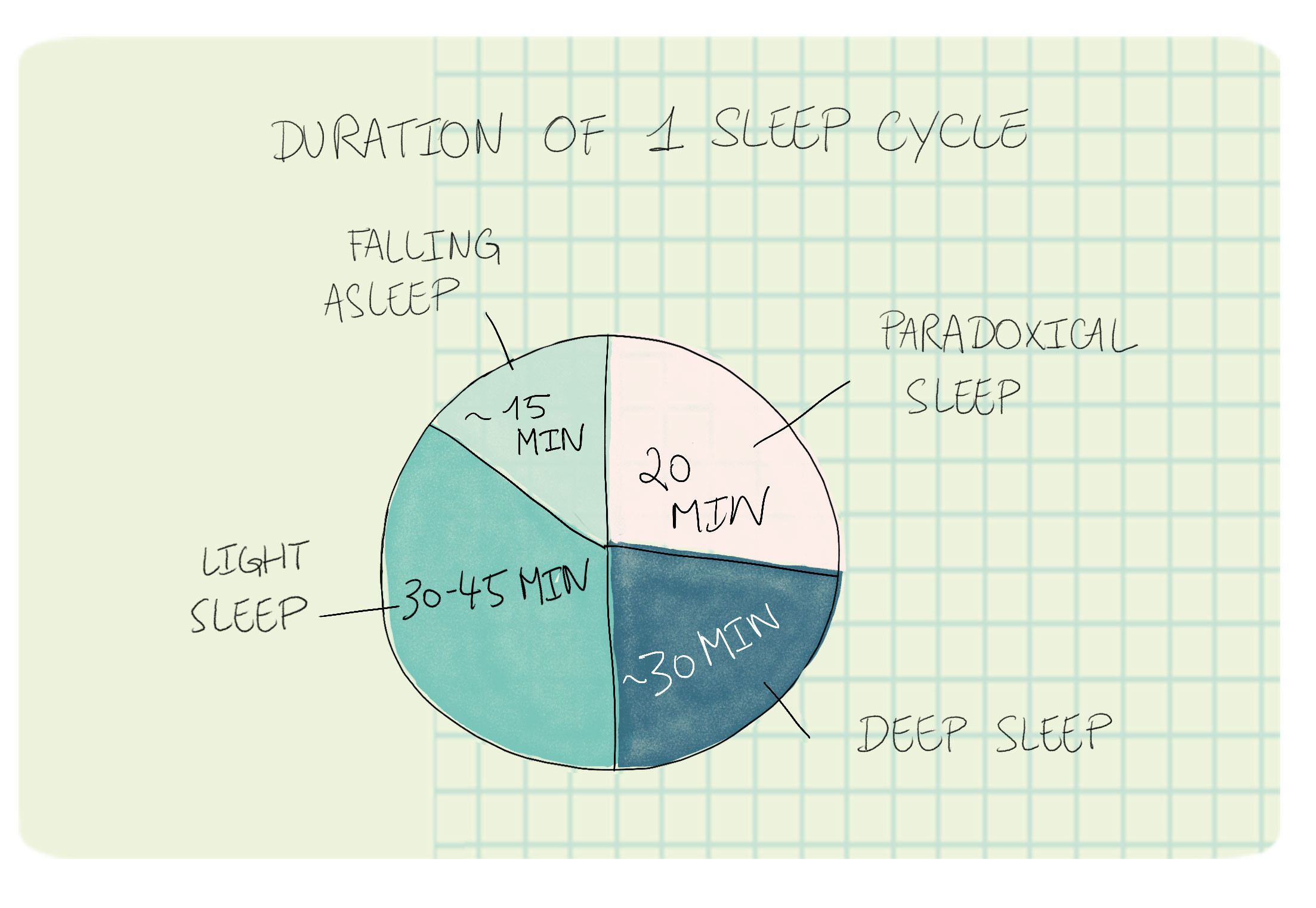
Like its name implies, light sleep is light. During this phase, your body slowly recovers from the day :
As a continuation of the drowsiness stage, your eyes and muscles slow down even more. A noise or a light can be enough to rouse you from sleep. It’s the phase during which your friends and family must turn down the sound on the television and tip toe around the house. Your brain begins to emit slow waves.
This stage only lasts 15% of your total sleeping time, but 50% of one sleep cycle. As your night progresses, light sleep is reduced in favor of deep sleep and REM sleep. The older you are, the more time you spend in light sleep.
If you fall asleep easily, you have a 50% chance of thinking you stayed awake during this phase. If you have a hard time falling asleep, it’s 80%.
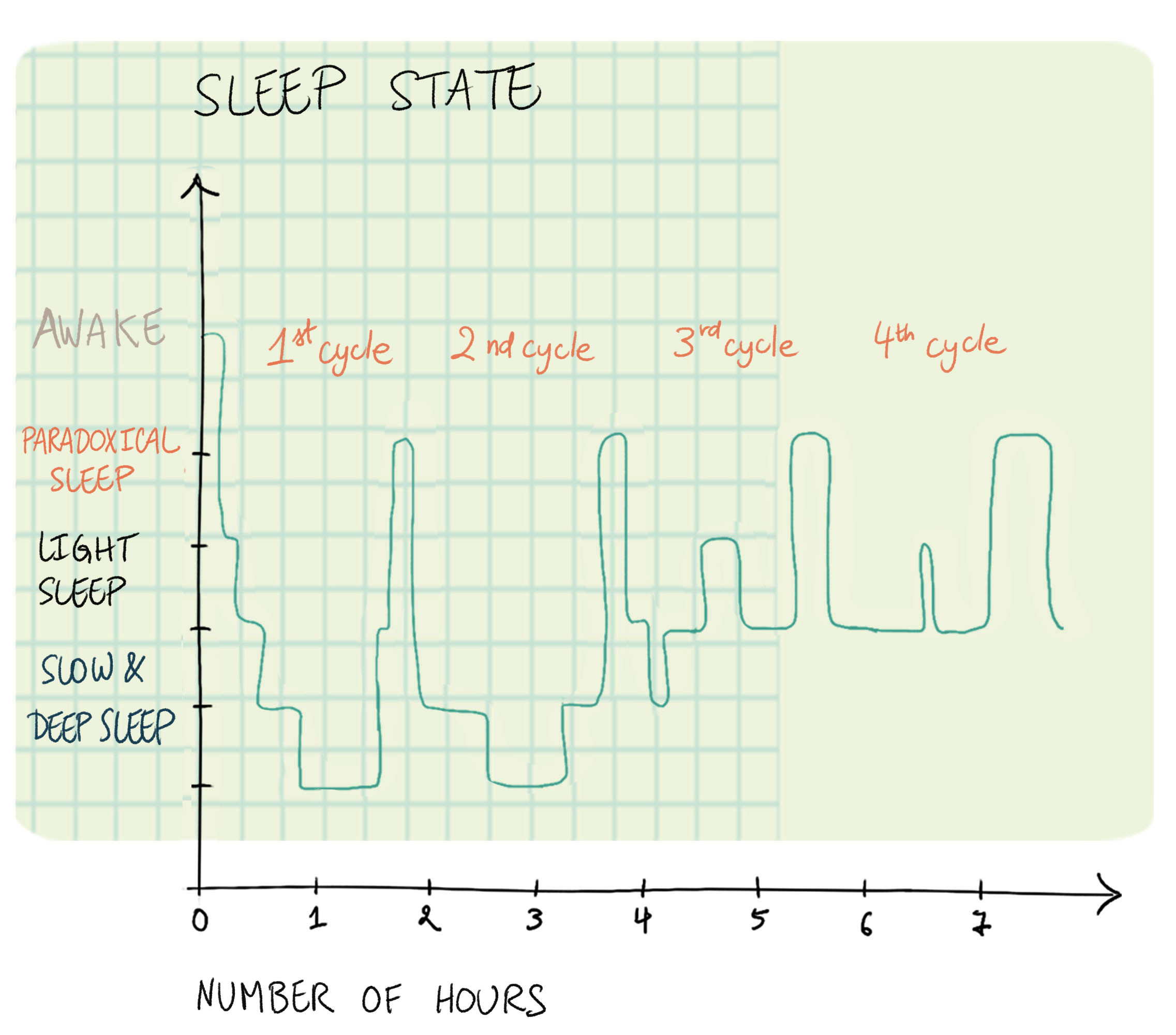
Slow, deep sleep is a phase during which your body homes in on rebuilding and fixing itself.
Your body is now so relaxed that your brain emits very slow and regular electric waves. Your heart rate and breathing rhythm slow down, as well as your body temperature. It becomes very difficult to wake you up, but if you ARE woken up, you’ll be sure to know you were sleeping!
That’s 40% of your total sleep time. The older you get, the less deep sleep you get.
During this phase, your body secretes somatropin, the growth hormone (that your body also produces during exercise, or when you’re under stress, though you produce less and less of this hormone as you get older.) During childhood, this hormone helps you grow up, but with age it helps you heal and reinforce your immune system.
Deep sleep is also the time during which your brain forms memories. If you have a good deep sleep, you will have a good declarative memory (that’s the memory you can recall on command), but watch out, the opposite is also true!
Deep sleep is also the time during which your brain forms memories. If you have a good deep sleep, you will have a good declarative memory (that’s the memory you can recall on command), but watch out, the opposite is also true!
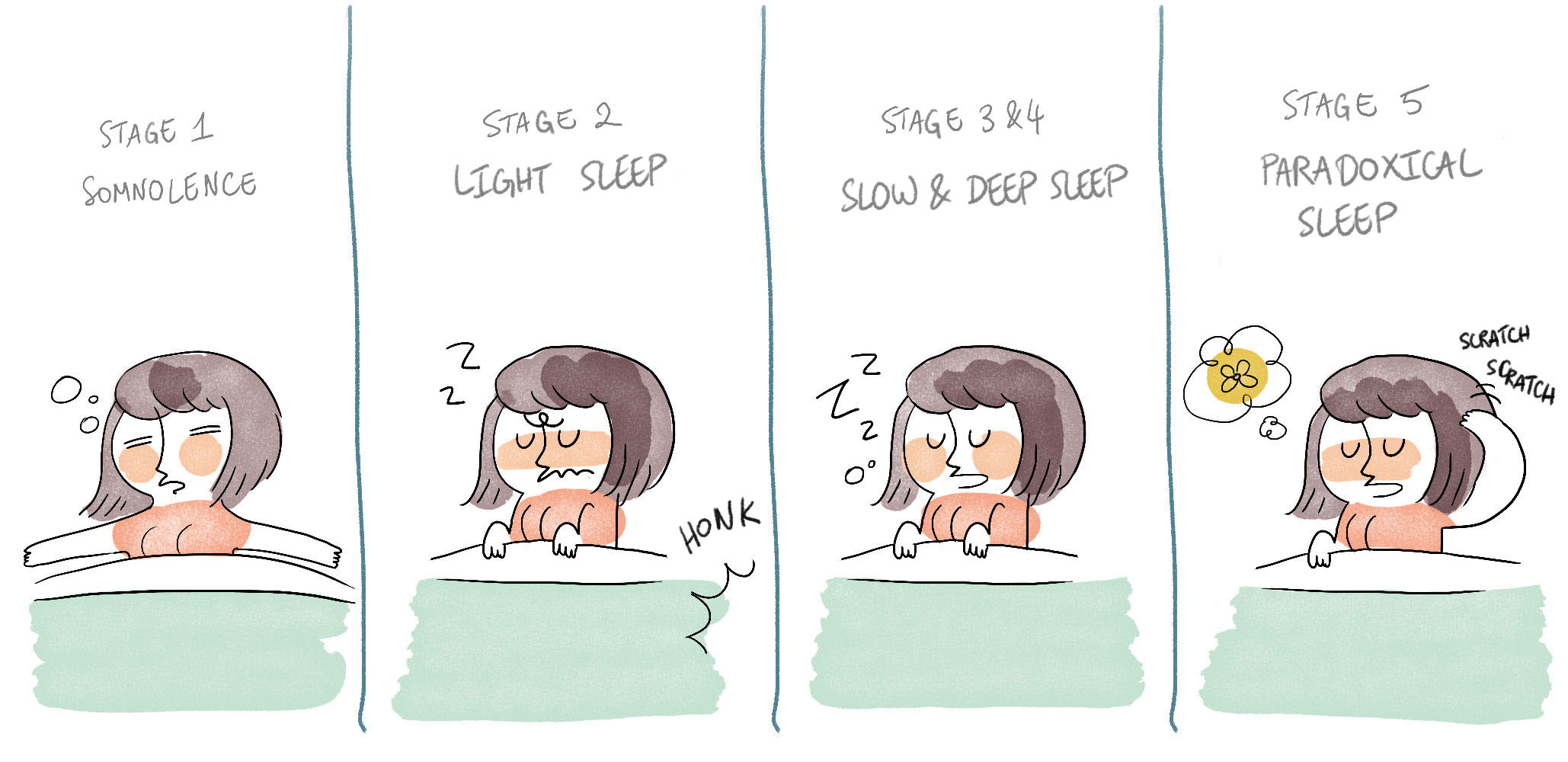
Also called paradoxical sleep, REM sleep is so called because of the Rapid Eye Movements of your eyes behind your eyelids during this phase. REM sleep builds your dreams and solidifies your memories.
REM sleep is also called paradoxical sleep because of the paradox between the total release of the muscles usually found during deep sleep, and the reactivation of your cerebral cortex which puts you in a state closer to wakefulness. Your breathing and heart rate become irregular. Your body does not react to smells, but can respond to physical stimuli (like touch, or pain).
The difference with a state of wakefulness is marked by the absence of many neurotransmitters that are not produced, even though the cerebral cortex is activated.
This stage lasts 15 to 20 minutes
With each cycle, your REM sleep time increases. Like deep sleep, it has a tendency to diminish with age.
During REM sleep, you dream and may be fidgety. Even if you have more chances of remembering a dream that you have had during this sleep stage, it doesn’t mean that you don’t dream the rest of the night – just that you don’t remember! By learning good habits, you can train yourself to remember your dreams more clearly… or even to control them thanks to lucid dreaming. The purpose of dreams is still up for debate; however, the scientific world is filled with hypotheses on a topic that fascinates a large audience.
REM sleep also continues the work started by deep sleep by improving your memory. By improving neuroplasticity, it allows for greater memory storing capacity.
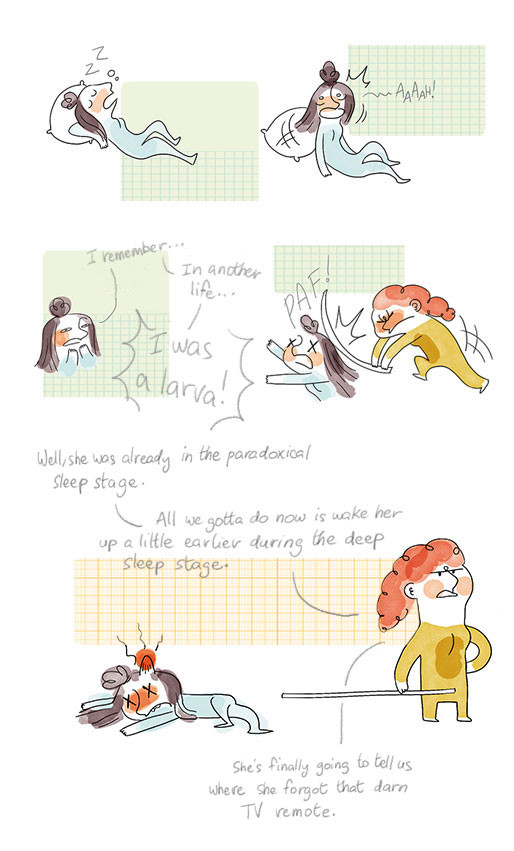
For most sleepers, 7 to 8 hours are enough to recharge your batteries. But for the 10% of the world population who are “big sleepers”, 9 to 10 hours are required. “Little sleepers”, at only 5% of the population, beat all records by requiring only 5 to 6 hours maximum.
Whatever happens, deep sleep is always the same amount of time for everyone, about 100 minutes per night. Little sleepers save time in REM sleep and light sleep.
Whether you’re a little or big sleeper, Dodow can help you gain precious minutes of sleep!
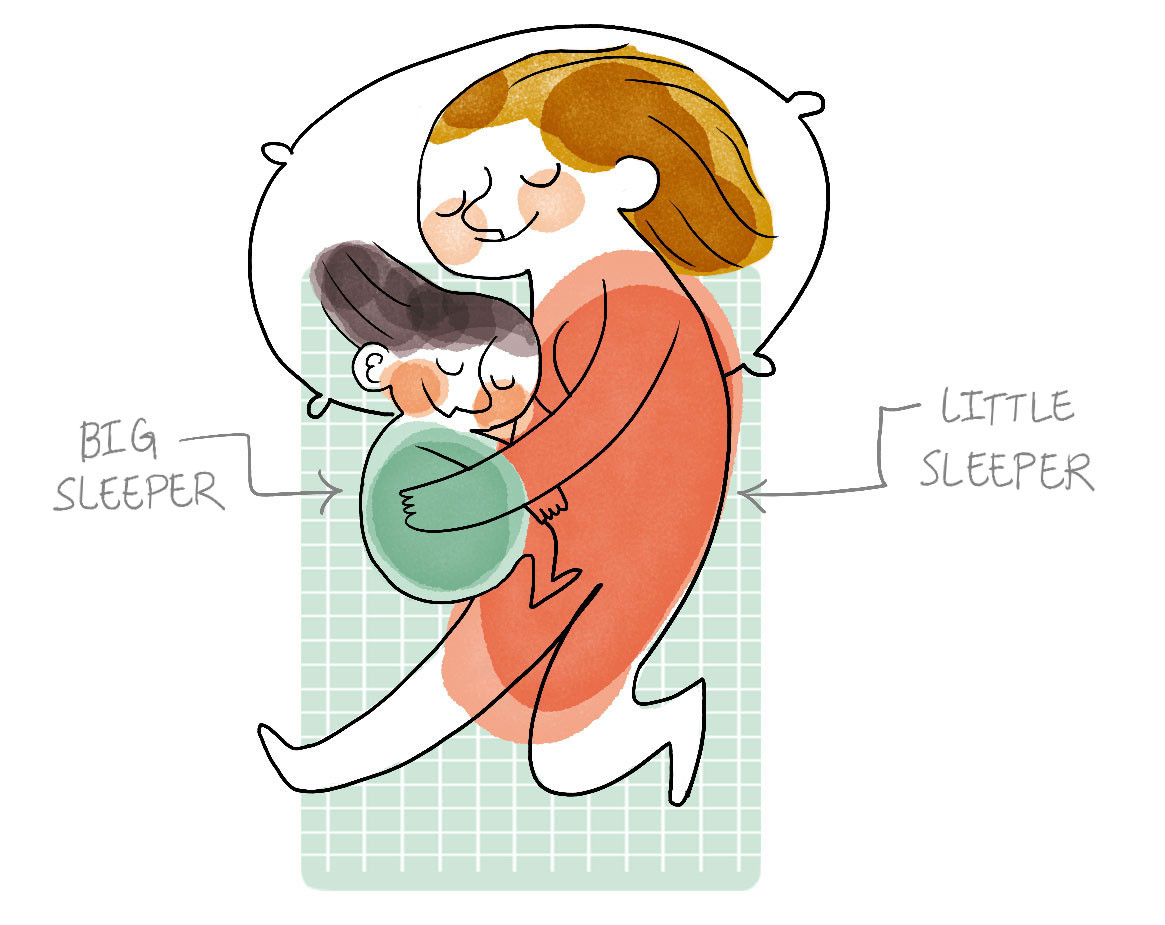
On the same topic :
Are you sleep deprived ? Find out how it works and how it affects you!
Kids have a different sleep cycle, best to be prepared!
Discover the best positions to fall asleep!Learn to meditate with these simple exercises in a few minutes!